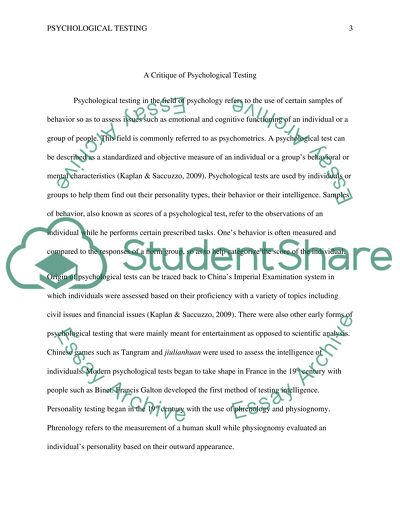Cite this document
(“Psychological Testing Research Paper Example | Topics and Well Written Essays - 1750 words”, n.d.)
Retrieved from https://studentshare.org/psychology/1481503-finding-test-material
Retrieved from https://studentshare.org/psychology/1481503-finding-test-material
(Psychological Testing Research Paper Example | Topics and Well Written Essays - 1750 Words)
https://studentshare.org/psychology/1481503-finding-test-material.
https://studentshare.org/psychology/1481503-finding-test-material.
“Psychological Testing Research Paper Example | Topics and Well Written Essays - 1750 Words”, n.d. https://studentshare.org/psychology/1481503-finding-test-material.


